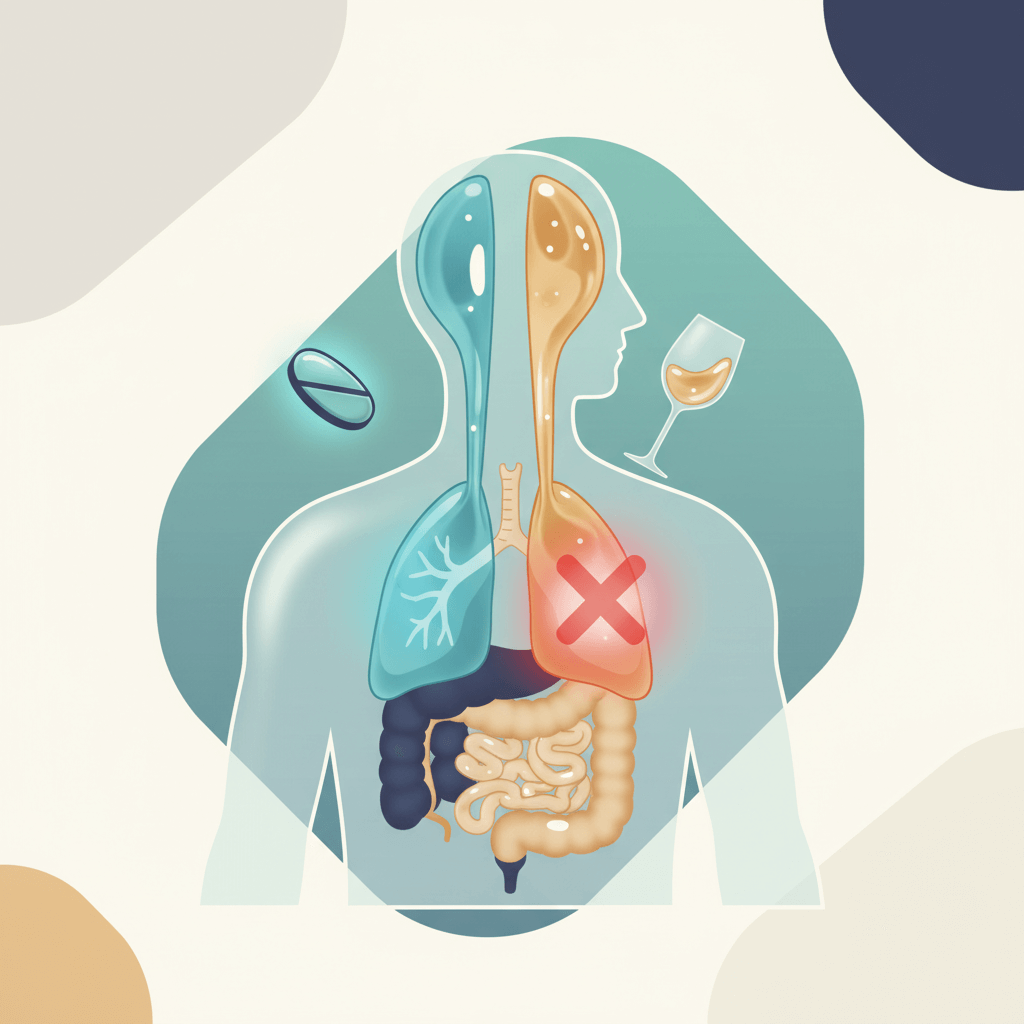Understanding Behavioral Therapy
Behavioral therapy is a widely recognized and effective approach in the field of addiction treatment. It focuses on understanding the thoughts, feelings, and behaviors that contribute to substance abuse and aims to modify them in order to promote recovery. This section provides an introduction to behavioral therapy and highlights its core principles.
Introduction to Behavioral Therapy
Behavioral therapy, also known as behavior therapy, is a form of psychotherapy that aims to address maladaptive behaviors and promote positive change. It is based on the idea that our thoughts, emotions, and behaviors are interconnected, and by modifying our behaviors, we can effectively improve our mental well-being.
In the context of addiction treatment and detoxification, behavioral therapy plays a crucial role in addressing the underlying causes and triggers of substance abuse. It helps individuals develop healthier coping mechanisms, manage cravings, and make positive lifestyle changes.

Core Principles
Behavioral therapy is guided by several core principles that form the foundation of this approach. These principles include:
- Behavior is learned: Behavioral therapy recognizes that behaviors, including addiction, are learned and can be unlearned. It focuses on identifying the underlying factors that contribute to substance abuse and teaches individuals new ways of thinking and behaving.
- Focus on the present: Rather than dwelling on past events, behavioral therapy emphasizes the importance of focusing on the present moment and the current factors that influence behavior. This approach helps individuals develop practical strategies to manage cravings and avoid relapse.
- Collaborative and goal-oriented: Behavioral therapy involves active collaboration between the therapist and the individual seeking treatment. Together, they set specific goals and work towards achieving them. This goal-oriented approach provides structure and direction throughout the treatment process.
- Evidence-based techniques: Behavioral therapy utilizes evidence-based techniques that have been extensively researched and proven effective. These techniques may include cognitive-behavioral therapy (CBT), dialectical behavior therapy (DBT), and contingency management, among others.
By understanding the principles underlying behavioral therapy, individuals undergoing detoxification can better comprehend the therapeutic process and the potential benefits it offers for their recovery journey.
Importance During Detox
Behavioral therapy plays a crucial role in the detox process, providing essential support and guidance to individuals seeking recovery from substance abuse. Understanding the role and benefits of behavioral therapy during detox is vital in comprehending its significance in the journey towards sobriety.
Role in Detox Process
Behavioral therapy works hand in hand with detoxification to address the psychological and emotional aspects of addiction. Detox alone focuses primarily on the physical withdrawal symptoms and the elimination of substances from the body. However, the detox process can be challenging, and individuals often face significant psychological and emotional distress [1].
Behavioral therapy provides individuals with coping strategies and tools to navigate through the difficulties encountered during detox. It helps in identifying and addressing the underlying causes of addiction, such as trauma, stress, or co-occurring mental health disorders. By exploring these factors, individuals can gain a deeper understanding of their triggers and develop healthier ways to manage cravings and emotions.
Benefits for Individuals
The benefits of behavioral therapy during detox are numerous and significant. Here are some key advantages for individuals:
- Emotional Support: Behavioral therapy offers a safe and supportive environment where individuals can express their emotions, fears, and concerns without judgment. This therapeutic alliance helps individuals feel understood and validated, reducing feelings of isolation and fostering a sense of belonging.
- Skill Development: Through behavioral therapy, individuals learn essential skills to cope with stress, manage cravings, and develop healthier habits. These skills empower individuals to navigate challenges and make positive choices, promoting long-term recovery.
- Relapse Prevention: Behavioral therapy equips individuals with relapse prevention strategies, teaching them how to identify high-risk situations, recognize warning signs, and implement effective coping mechanisms. By focusing on relapse prevention, behavioral therapy helps individuals maintain their sobriety beyond the detox phase.
- Building Support Networks: Behavioral therapy often includes group therapy sessions, allowing individuals to connect with others who are going through similar experiences. These connections provide a support network, fostering empathy, accountability, and a sense of community.
The integration of behavioral therapy into the detox process emphasizes the importance of addressing both the physical and psychological aspects of addiction. By incorporating therapeutic interventions, individuals receive comprehensive care that enhances their chances of successful recovery.
In the next section, we will explore some of the techniques commonly used in behavioral therapy during detox, further highlighting the individualized approach to treatment.
Techniques Used
Behavioral therapy employs various techniques to facilitate the detox process and support individuals in their recovery journey. Three commonly used techniques are cognitive behavioral therapy (CBT), dialectical behavior therapy (DBT), and contingency management.
Cognitive Behavioral Therapy (CBT)
Cognitive behavioral therapy (CBT) is a widely utilized approach in behavioral therapy. It focuses on identifying and modifying negative thought patterns and behaviors that contribute to substance abuse. By addressing the underlying beliefs and emotions, CBT helps individuals develop healthier coping mechanisms and strategies.
During detox, CBT can assist individuals in recognizing triggers and learning techniques to manage cravings and withdrawal symptoms. Through structured sessions, individuals work with therapists to challenge and reframe their thoughts, developing more positive and adaptive ways of thinking. This process supports individuals in making lasting behavioral changes that contribute to their recovery.
Dialectical Behavior Therapy (DBT)
Dialectical behavior therapy (DBT) is another technique commonly used during detox. Originally developed to treat borderline personality disorder, DBT has been adapted for substance abuse treatment. DBT combines elements of cognitive behavioral therapy with mindfulness practices.
DBT emphasizes developing skills in four key areas: mindfulness, distress tolerance, emotion regulation, and interpersonal effectiveness. These skills help individuals manage intense emotions, cope with stress, and enhance their relationships. By promoting self-awareness and emotional regulation, DBT can enhance the detox process by providing individuals with effective tools to address challenges and maintain sobriety.
Contingency Management
Contingency management is a behavioral therapy technique that utilizes positive reinforcement to encourage and reward desired behaviors. This technique is particularly effective in promoting abstinence and preventing relapse during the detox process.
In contingency management, individuals receive tangible rewards, such as vouchers or privileges, for meeting treatment goals, such as attending counseling sessions, passing drug tests, or achieving specific milestones in their recovery. By reinforcing positive behaviors, contingency management motivates individuals to stay committed to their recovery journey and fosters a sense of accomplishment.
These techniques, along with other behavioral therapy approaches, play a vital role in the detox process. They help individuals understand the connections between their thoughts, emotions, and behaviors, providing them with the skills and tools necessary to navigate challenges and maintain their recovery. Through the application of these evidence-based techniques, behavioral therapy supports individuals in achieving long-term sobriety and leading healthier lives.
Individualized Approach
In the context of behavioral therapy during detox, an individualized approach is essential to effectively address the unique needs and circumstances of each person seeking treatment. This approach involves tailoring therapy to meet the specific requirements of individuals and creating personalized treatment plans.
Tailoring Therapy to Needs
To ensure the success of behavioral therapy during detox, it is crucial to tailor the treatment approach to the individual's needs. Every person's journey through detox is unique, and their underlying reasons for substance abuse may vary. By understanding the individual's history, triggers, and goals, therapists can customize therapy techniques and interventions accordingly.
Therapists may employ various assessment tools and interviews to gather information about the individual's mental health, substance use patterns, and personal challenges. This comprehensive evaluation enables therapists to identify the specific areas that need to be addressed during the detox process.
By tailoring therapy to meet the individual's needs, therapists can focus on the underlying issues contributing to substance abuse, such as trauma, co-occurring mental health disorders, or unhealthy coping mechanisms. This individualized approach increases the effectiveness of therapy by addressing the root causes of addiction.
Personalized Treatment Plans
To ensure a comprehensive and targeted approach, personalized treatment plans are developed based on the individual's specific needs and goals. These plans outline the course of therapy, including the techniques to be used, the frequency of sessions, and the milestones to be achieved.
The treatment plan is a collaborative effort between the individual and the therapist. It takes into account the individual's preferences, strengths, and limitations. The plan is flexible and can be adjusted throughout the detox process to accommodate any changes or challenges that may arise.
A personalized treatment plan may include various evidence-based behavioral therapy techniques such as Cognitive Behavioral Therapy (CBT), Dialectical Behavior Therapy (DBT), or Contingency Management. These techniques are chosen based on their appropriateness for the individual's needs and their proven efficacy in supporting recovery.
By having a personalized treatment plan, individuals undergoing detox can have a clear roadmap for their therapeutic journey. It provides structure and guidance, helping them stay focused and motivated throughout the process.
An individualized approach in behavioral therapy during detox recognizes the unique circumstances and needs of each person seeking treatment. By tailoring therapy to meet these needs and creating personalized treatment plans, therapists can maximize the effectiveness of the therapy and support individuals on their path to recovery.
Integration with Detox Programs
Behavioral therapy plays a crucial role in the detoxification process, working hand in hand with detox programs to provide comprehensive support for individuals seeking recovery. The integration of behavioral therapy within detox programs is a collaborative effort that creates a supportive environment conducive to healing and long-term success.
Collaborative Efforts
In the context of detox programs, behavioral therapy operates in close collaboration with healthcare professionals, including doctors, therapists, and counselors. These professionals work together to develop an individualized treatment plan that addresses the unique needs and challenges of each person.
Behavioral therapists collaborate with other members of the treatment team to ensure a holistic approach to detoxification. Through regular communication and coordination, they can align their efforts to provide a cohesive and comprehensive treatment experience. This collaborative approach helps create a unified support system that maximizes the chances of successful recovery.
Supportive Environment
An essential aspect of integrating behavioral therapy into detox programs is the creation of a supportive environment for individuals. Detox can be a challenging and emotionally charged process, and having a supportive environment is crucial for individuals to feel safe, understood, and motivated.
During detox, behavioral therapy helps individuals develop coping strategies and skills to manage cravings, withdrawal symptoms, and emotional distress. Therapists provide guidance and support, offering a non-judgmental space where individuals can express their concerns and work through underlying issues contributing to substance use.
The supportive environment also extends to group therapy sessions where individuals can connect with peers who are going through similar experiences. Group therapy fosters a sense of community and provides a platform for individuals to share their struggles, successes, and insights. This shared experience can be empowering and inspiring, reinforcing the commitment to recovery.
By integrating behavioral therapy into detox programs, individuals receive comprehensive care that addresses both the physical and psychological aspects of addiction. This collaborative and supportive approach enhances the effectiveness of the detox process and sets the foundation for long-term recovery.
Remember, each person's journey is unique, and an individualized approach to treatment is essential. Behavioral therapy can be tailored to meet the specific needs and circumstances of each individual, ensuring that they receive the support and guidance necessary to achieve lasting recovery.
Long-Term Effects
Behavioral therapy during detox plays a crucial role in supporting individuals on their path to recovery. By addressing the underlying psychological factors that contribute to substance abuse, behavioral therapy can have long-term effects in sustaining recovery and preventing relapse.
Sustaining Recovery
One of the primary long-term effects of behavioral therapy is its ability to help individuals sustain their recovery. By identifying and modifying negative thought patterns and behaviors, behavioral therapy equips individuals with the necessary skills to navigate challenges and maintain a substance-free lifestyle.
Behavioral therapy techniques such as Cognitive Behavioral Therapy (CBT) and Dialectical Behavior Therapy (DBT) provide individuals with practical tools to cope with cravings, manage stress, and handle triggers that may arise during their recovery journey. Through these techniques, individuals learn healthier coping mechanisms and develop a stronger sense of self-control, which can greatly contribute to their ability to sustain recovery.
Preventing Relapse
Preventing relapse is a significant goal of behavioral therapy during detox. By addressing the underlying factors contributing to substance abuse, such as negative emotions, maladaptive behaviors, and distorted thinking patterns, individuals gain the skills and insights necessary to prevent relapse.
Contingency management is another technique used in behavioral therapy that can help prevent relapse. This approach reinforces positive behaviors and abstinence by providing tangible rewards or incentives. By associating sobriety with positive outcomes, individuals are motivated to maintain their recovery and avoid relapse.
Furthermore, behavioral therapy helps individuals develop a relapse prevention plan that includes strategies to identify potential triggers, cope with cravings, and seek support when needed. By equipping individuals with these tools, behavioral therapy empowers them to make healthier choices and reduce the risk of relapse.
In summary, behavioral therapy during detox has significant long-term effects in sustaining recovery and preventing relapse. By addressing the psychological aspects of substance abuse, individuals gain valuable skills, coping mechanisms, and insights that contribute to their ability to maintain a substance-free lifestyle. Through a combination of evidence-based techniques and personalized treatment plans, behavioral therapy provides individuals with the tools they need to navigate the challenges of recovery and lead a fulfilling, sober life.
References
https://www.newdawntreatmentcenters.com/cognitivebehavioral-therapy-in-drug-detox-support/
https://www.addictioncenter.com/treatment/cognitive-behavioral-therapy/













